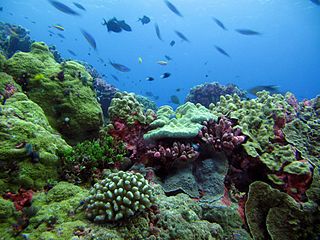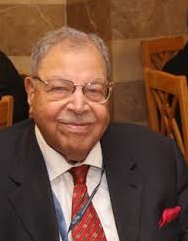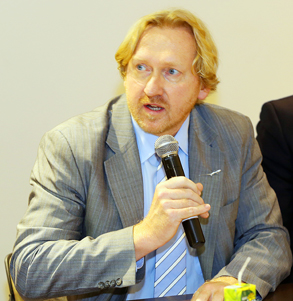
The Convention on Biological Diversity (CBD), known informally as the Biodiversity Convention, is a multilateral treaty. The Convention has three main goals: the conservation of biological diversity ; the sustainable use of its components; and the fair and equitable sharing of benefits arising from genetic resources. Its objective is to develop national strategies for the conservation and sustainable use of biological diversity, and it is often seen as the key document regarding sustainable development.

The United Nations Environment Programme (UNEP) is responsible for coordinating responses to environmental issues within the United Nations system. It was established by Maurice Strong, its first director, after the United Nations Conference on the Human Environment in Stockholm in June 1972. Its mandate is to provide leadership, deliver science and develop solutions on a wide range of issues, including climate change, the management of marine and terrestrial ecosystems, and green economic development. The organization also develops international environmental agreements; publishes and promotes environmental science and helps national governments achieve environmental targets.

The Ramsar Convention on Wetlands of International Importance Especially as Waterfowl Habitat is an international treaty for the conservation and sustainable use of Ramsar sites (wetlands). It is also known as the Convention on Wetlands. It is named after the city of Ramsar in Iran, where the convention was signed in 1971.
The UN Environment Programme World Conservation Monitoring Centre (UNEP-WCMC) is the specialist biodiversity centre of UN Environment Programme, based in Cambridge in the United Kingdom. UNEP-WCMC has been part of UN Environment Programme since 2000 and has responsibility for biodiversity assessment and support to policy development and implementation. The "World Conservation Monitoring Centre" was previously an independent organisation jointly managed by IUCN, UN Environment Programme and WWF established in 1988. Prior to that, the centre was a part of the IUCN Secretariat.
Angela Cropper of Trinidad and Tobago served as assistant secretary-general and deputy executive director of the United Nations Environment Programme (UNEP). She was appointed to this position by United Nations Secretary-General Ban Ki-moon in November 2007.
According to an important University's master program, Environmental governance (EG) consist of a system of laws, norms, rules, policies and practices that dictate how the board members of an environment related regulatory body should manage and oversee the affairs of any environment related regulatory body which is responsible for ensuring sustainability (sustainable development) and manage all human activities—political, social and economic. Environmental governance includes government, business and civil society, and emphasizes whole system management. To capture this diverse range of elements, environmental governance often employs alternative systems of governance, for example watershed-based management. Obviously, in fact the EG arrangements are very diversed and not at all as inclusive as we could wish them to be.

The World Database on Protected Areas (WDPA) is the largest assembly of data on the world's terrestrial and marine protected areas, containing more than 260,000 protected areas as of August 2020, with records covering 245 countries and territories throughout the world. The WDPA is a joint venture between the United Nations Environment Programme World Conservation Monitoring Centre and the International Union for Conservation of Nature World Commission on Protected Areas.

Nick Nuttall is a freelance communications consultant and former Director of Communications and Outreach and Spokesperson for the UN Environment headquartered in Nairobi, Kenya and the UN Framework Convention on Climate Change headquartered in Bonn, Germany.

Mostafa Kamal Tolba was an Egyptian scientist who served for seventeen years as the executive director of the United Nations Environment Programme (UNEP). In that capacity he led development of the Montreal Protocol, which saved the ozone layer and thus millions of lives from skin cancer and other impacts.

Tan Sri Zakri bin Abdul Hamid has had a distinguished career in science as a researcher, educator, administrator and diplomat.
Global Environmental Governance is the title of a book written by Adil Najam, Mihaela Papa and Nadaa Taiyab. All the information of this article comes from this book.
John E. Scanlon is an Australian attorney who has held positions with Australian and international environmental organizations, in the fields of environment, development, and elephant conservation.

Bradnee Chambers was an expert on international environmental governance, law and politics. In March 2013 he was appointed as the Executive Secretary of the Convention on the Conservation of Migratory Species of Wild Animals (CMS), a main United Nations multilateral conservation treaty He was also the acting Executive Secretary of the Gorilla Agreement and the Agreement on the Conservation of Small Cetaceans in the Baltic, North East Atlantic, Irish and North Seas (ASCOBANS) both administered under the UN Environment Programme. These agreements form the global framework for conservation of wild animals migrating between countries. The agreements cover an immense scope of wildlife including whales, dolphins, sharks, elephants, big cats, bats, monarch butterflies, saiga antelope, waterbirds, and migratory fish.
Professor Reuben James Olembo (1937–2005) was a prominent Kenyan academic, scientist and environmentalist. He was a deputy executive director of the United Nations Environment Programme (UNEP), which he played a pivotal role in helping found, and United Nations Assistant Secretary General from 1994 to 1998. He became the Acting Secretary General of the Convention on International Trade in Endangered Species of Wild Fauna and Flora (CITES), after his retirement from UNEP.

Martha Rojas Urrego is a biologist, ecologist and humanitarian, gender and environmental advocate. She is a Colombian and French national. In August 2016 she was appointed as the Secretary General of the Ramsar Convention on Wetlands. Previously she was Head of Global Advocacy and Acting Deputy Secretary General at humanitarian organization CARE International.

The Kew International Medal is an award given to individuals who have made a significant contribution to science and conservation. The award was first established in 1992 by the Board of Trustees of the Royal Botanic Gardens, Kew.

K. Madhava Sarma (1938-2010) was the first Executive Secretary of the Vienna Convention for the Protection of the Ozone Layer and the Montreal Protocol on Substances that Deplete the Ozone Layer from 1991 to 2000 at the United Nations Environment Programme (UNEP). He is considered one of the founders and leading figures in the success of the Montreal Protocol that established legally binding controls on the production and consumption of chemicals that cause ozone depletion and damage the stratospheric ozone layer which protects the Earth against the harmful effects of ultraviolet radiation. These effects include skin cancer, sunburn, permanent blindness and cataracts as well as harm to plants and animals. The Montreal Protocol was recognized by Kofi Annan, former Secretary General of the United Nations as being “perhaps the single most successful international environmental agreement to date" and went on to become the first treaty in the history of the United Nations to be universally ratified in 2008 by 197 countries.

Henrietta Elizabeth Thompson, widely known as Liz Thompson is a Barbadian lawyer, politician and diplomat who has made significant contributions to sustainable energy policy. While an elected Member of Parliament representing the Barbados Labour Party for the St. James South constituency from 1994 to 2008. She served as on different occasions as Minister of Health, Minister of Housing, Minister of Physical Development, Minister of Energy and Environment, and Acting Attorney General. She joined the United Nations in 2010, first serving as Assistant Secretary-General of the UN, a Special Adviser to the UN President of the General Assembly, and as the UN Secretary General’s Senior Advisor on Sustainable Energy for All. In 2018, she was appointed Permanent Representative of Barbados to the United Nations.

The Kunming-Montreal Global Biodiversity Framework (GBF) is an outcome of the 2022 United Nations Biodiversity Conference. Its tentative title had been the "Post-2020 Global Biodiversity Framework". The GBF was adopted by the 15th Conference of Parties (COP15) to the Convention on Biological Diversity (CBD) on 19 December 2022. It has been promoted as a "Paris Agreement for Nature". It is one of a handful of agreements under the auspices of the CBD, and it is the most significant to date. It has been hailed as a "huge, historic moment" and a "major win for our planet and for all of humanity."













